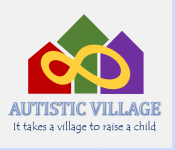Neuro Diversity
“Neurodiversity” is a word used to explain the unique ways people's brains work. While everyone's brain develops similarly, no two brains function just alike. Being neurodivergent means having a brain that works differently from the average or “neurotypical” person.
ADHD, Autism, Dyspraxia, Dyslexia, Dyscalculia, Dysgraphia, and Tourette's syndrome are all examples of neurodiverse conditions. They're diagnostic labels used to explain the diverse ways of thinking, learning, processing and behaving. As with all people, we each have our talents and challenges.
A child-friendly video explaining ADHD
A child-friendly video explaining ASD
Useful Links
|
Supporting families of children with additional needs. |
We're here to help the 700,000 autistic people in the UK and their families |
Appreciating and supporting neuro diversity – offering advice and support from ADHD to working memory boosters. |
| This website is designed to introduce and showcase Autistic culture, community and experience. | PDA (Pathological Demand Avoidance) is understood to be a profile on the autism spectrum, involving the avoidance of everyday demands and the use of ‘social’ strategies as part of this avoidance. | Autism Hampshire offers a range of services that have been developed to meet the needs of individuals, families and professional bodies |








